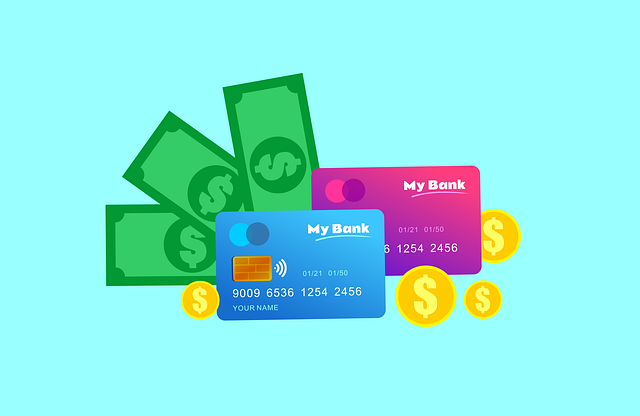Debt consolidation in South Africa is a powerful tool for individuals with multiple debts and high inflation rates, offering lower interest rates and simplified repayment schedules. By combining unsecured debts like credit cards into one loan, South Africans can reduce monthly payments, break the cycle of compounding interest, and regain financial control. This process involves careful assessment, exploring options like debt counselling or personal loans, and securing favourable terms to achieve long-term financial stability.
In South Africa, where high interest rates and economic disparities pose significant financial challenges, understanding debt consolidation is more crucial than ever. This comprehensive guide explores the consolidation of debt in South Africa, highlighting its importance as a strategy to avoid debt traps and reclaim financial control. From navigating the complex South African debt landscape to uncovering the profound benefits of consolidation, this article equips readers with insights for making informed decisions about their financial future.
- Understanding Debt Consolidation: A Comprehensive Guide
- The South African Debt Landscape: Challenges and Opportunities
- Benefits of Debt Consolidation: Taking Control of Your Financial Future
- Strategies for Effective Debt Consolidation in South Africa
Understanding Debt Consolidation: A Comprehensive Guide

Debt consolidation is a strategic financial move that involves combining multiple debts into one single loan with a lower interest rate. In the context of South Africa, where high inflation and varying interest rates can make managing multiple debts challenging, understanding this process becomes crucial. This approach simplifies repayment by offering a more manageable payment schedule, typically over an extended period.
In South Africa, the consolidation of debt is a popular strategy for individuals burdened by credit card debt, personal loans, or other unsecured debts. It provides a clear path to financial stability by reducing monthly payments and the overall interest paid over time. With careful planning and expert guidance, South Africans can avoid complex debt traps and work towards achieving their financial goals more efficiently.
The South African Debt Landscape: Challenges and Opportunities

South Africa’s debt landscape presents a complex picture with both significant challenges and opportunities for those trapped in a cycle of debt. With high levels of personal debt, many South Africans are struggling under the weight of multiple loan obligations. The country’s economic history has left a legacy of limited access to financial services, pushing many individuals towards alternative lenders and short-term credit solutions. As a result, many find themselves caught in a spiral of high-interest debt with little hope of escape.
The consolidation of debt in South Africa offers a promising avenue to navigate this challenging financial terrain. By combining multiple debts into one manageable loan with a lower interest rate, individuals can regain control over their finances. This strategy not only simplifies repayment but also helps to break the cycle of compounding interest that often characterizes high-debt scenarios. With careful planning and expert guidance, South Africans can take advantage of this opportunity to secure a brighter financial future.
Benefits of Debt Consolidation: Taking Control of Your Financial Future

Debt consolidation is a powerful tool for anyone looking to regain control of their finances and secure a brighter financial future. In South Africa, where many individuals struggle with multiple debts due to various economic factors, consolidating debt can be a game-changer. By combining multiple high-interest debts into one single loan with a lower interest rate, debtors can simplify their repayments and significantly reduce the overall cost of their debt. This process provides much-needed financial breathing space, allowing borrowers to focus on rebuilding their credit and achieving long-term financial stability.
One of the key advantages is the convenience it offers. Instead of managing multiple lenders and repayment schedules, a consolidated debt allows for easier tracking and more manageable monthly payments. This simplicity reduces the risk of missing payments due to disorganization or confusion, which can lead to additional fees and penalties. Furthermore, a well-structured consolidation plan can help individuals break free from the cycle of high-interest accrual, commonly known as debt traps. By reducing interest rates, debtors have more funds available for other essential expenses or even savings, fostering financial growth and independence.
Strategies for Effective Debt Consolidation in South Africa

In South Africa, where financial challenges are prevalent, effective debt consolidation offers a viable solution for many. The first step is to assess one’s financial situation honestly and comprehensively. This involves listing all debts, their corresponding interest rates, minimum payments, and due dates. A clear understanding of one’s financial obligations is crucial for successful consolidation.
Once the picture is clear, consider various consolidation options tailored to South African conditions. These include debt counselling services that provide guidance on negotiating lower interest rates with lenders or restructuring debt through legal means. Additionally, personal loans specifically designed for debt consolidation can offer a unified repayment schedule at potentially lower interest rates. It’s important to research and compare different financial institutions offering such loans to find the most favourable terms.
In light of the complex debt landscape in South Africa, consolidating debt is a powerful strategy for financial freedom. By understanding the process and benefits, individuals can navigate their financial challenges effectively. The article has provided a comprehensive guide, highlighting the opportunities and advantages of consolidation, particularly tailored to the unique economic environment of South Africa. Embracing these strategies can help citizens break free from debt traps, fostering financial stability and a brighter future.







